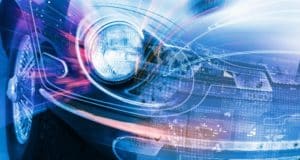 According to a report by LexisNexis Risk Solutions, advanced driver assistance systems (ADAS) provide significant benefits to drivers and insurance companies alike. When comparing a collision with a vehicle with ADAS features to one without any, the ADAS vehicle had:
According to a report by LexisNexis Risk Solutions, advanced driver assistance systems (ADAS) provide significant benefits to drivers and insurance companies alike. When comparing a collision with a vehicle with ADAS features to one without any, the ADAS vehicle had:
- 23% less bodily injury costs
- 14% reduction in property damage costs
- 8% reduction in collision claims costs
Overall, vehicles with ADAS features had minor reductions in claim severity with greatly reduced claim frequency.
The company analyzed data from 11 million vehicles from the model years of 2014 through 2019 and compared them to industry-wide data for each of the 648 combinations of the eleven foundational ADAS features. Depending on the combo, cost reductions could be up to 5 percent with some collision costs lowered by 20-25 percent.
Reasons for these decreases include how ADAS-enabled vehicle collisions may have less force, lowering the property damage to other vehicles and bodily injury of third parties in the vehicles.
In short, ADAS helps make driving and being on the road safer, just as these systems were intended to do. When a collision occurs, though, ADAS repairs must be properly calibrated to ensure the systems are effectively working again to protect the driver and others on the road.
Lack of Proper ADAS Calibration
At the 2021 SEMA Show, during an OEM Collision Repair Technology Summit, vehicle manufacturers warned the audience that improperly calibrated ADAS components may give customers no advance warnings.
Here’s one example shared at the summit. The manufacturer requires ADAS calibrations to be performed on a floor with a slope of less than one degree in any direction. When properly calibrated in this environment, an automatic emergency braking repair and calibration worked well. This experiment was repeated on a floor with a 1.5 pitch, and results were quite different. The properly calibrated vehicle stopped three or four feet from an obstacle while the improperly calibrated vehicle didn’t react.
This experiment clearly demonstrates how all OEM steps must be followed to ensure the safety of the vehicle. However, there’s a problem. Once a vehicle’s manufacturer warranty has expired, customers may decline to have the full repair and ADAS calibration done if their auto insurance policy won’t pay for all of the necessary steps. In response, a manager director from an automotive research firm stressed that auto repair shops should push to have insurance companies pay for all the OEM recommended ADAS calibration steps.
ADAS Repairs and the Insurance Industry
Benefits of ADAS technology are clear and manufacturers are continuing to develop sensors that will make cars of the future even more safe. The problem is that ADAS repairs are more expensive than ones performed on cars of the past, and this is where the issue of auto insurance becomes more complicated.
According to Automotive World, nearly three quarters of drivers today want their ADAS components to optimally work after auto repairs—and, to make that happen, auto repair shops must repair and calibrate according to OEM instructions. What used to be a fender bender fix could now involve the replacement or a backup camera.
The writer of the article (an industry analyst), urges insurance companies to factor in how ADAS has been proven to reduce crashes and to lower the severity when a collision occurs. She suggests the need for more personalized car insurance plans; for example, a driver could be given a discount if willing to share driving data to help the insurance industry weigh risk and price their policies.
This, she describes, could be a real win-win. In a survey, 74 percent of drivers said they would share ADAS data if it lowered their premiums and provided them with good driving rewards. The drivers, then, would benefit from lower costs while insurance companies would have the information needed to make data-driven decisions. By offering lower premiums and rewards, an insurance company could boost recruitment of new customers and retain current ones.
Now is the time to address this issue. Looking towards the future, ADAS technologies will only become more advanced. So, insurance companies need access to relevant data now to properly insure drivers and price their premiums.
Quantifying ADAS Software Data
Actuarial Review discusses the need for sufficient data to quantify the true value of vehicle technologies, noting the differing capabilities of ADAS features between manufacturers. Some are intended for highway driving while others react to very specific objects on the road, which emphasizes the need for significant quantities of data. So this insurance industry publication is calling for manufacturers to provide detailed information in a public national database of vehicles.
This is clearly a complex topic. So, what can your auto body shop do?
Negotiating with Insurance Companies
After you’ve performed your auto diagnosis, you may find yourself negotiating with insurance adjusters to get the repairs done according to OEM specifications with factory-approved parts. This can be a frustrating process for both parties. As a repair professional who understands how to fix vehicles, it can be frustrating to try to explain the importance of certain processes, and it may feel as though you’ve having to defend your automotive diagnosis. The insurance adjuster, meanwhile, is likely getting pressure from the company to keep their costs down.
One claims adjuster shares thoughts on how to smooth over the process. He notes how picking the right person (or people) at your shop to discuss insurance claims can make a big difference. Everyone has different skill sets and personalities, so choosing someone who stays calm, logical, and friendly throughout the discussion can be a smart decision. These employees can focus on building positive relationships by “returning phone calls promptly, welcoming them [adjusters] to the shop, and having all paperwork filled out and ready to go.”
Find common ground. Keep your automotive diagnosis and customer needs front of mind while also listening to the concerns of the insurance adjuster.
Create solid policies about how to communicate with insurance adjusters, including a list of what each individual insurance company prefers or requires. Also be ready to provide specifics about repairs that need to be done, including ADAS calibrations, their costs, and when and why a reinspection of the vehicle is important.
How Our ADAS Calibration Tool Can Help
Our ADAS calibration tool is a combination of AirPro Diagnostics’ hardware and ORION, the data management system. With this tool, there is no guesswork involved in the automotive diagnosis, and you’ll receive a clear, downloadable report that you can use in your communications with insurance adjusters.
Our ADAS Identification tool will allow you to conduct a comprehensive scan of the vehicle’s ADAS features, reading data and showing you relevant diagnostic trouble codes (DTC). As part of the process, you will use diagnostic scanning software that’s compatible with the specific vehicle for optimal results.
Now, here’s our key differentiator. With more than forty vehicle manufacturers building hundreds of models, it isn’t possible for any one repair professional or shop to have up to date information on the ADAS features of every vehicle. It’s possible that an insurance adjuster might point that out to you.
With AirPro Diagnostics, though, you have ready access to our brand specialists that have the niche experience you need for highly targeted support. With our remote service, one of our brand specialists will review and interpret your scanning results and provide recommendations.
We respond to service requests within ten minutes, knowing that your time is valuable, not something to be wasted. Within that time frame, we will be remotely in the vehicle you’re scanning and diagnosing. (Our average service fulfillment time is actually much shorter. Over the past year, response time has actually averaged one minute and twenty-seven seconds!)
You can count on quick initial scans, an accurate automotive diagnosis, and expert support throughout the process. You can then present information to and negotiate with insurance adjusters with confidence, knowing you’ve got exactly the right information at your fingertips. You’ll benefit from having direct access to OEM licensed software and multi-brand diagnostics applications—ones that are resident and directly connected to the vehicle.
Providing highly accurate, targeted information that an insurance adjuster needs, right when they need it, will go a long way in building the positive relationships that will benefit your auto repair shop and your customers, calibrating cars for the ultimate in safety when they go back out on the road.
AirPro for Your Auto Diagnostics Tool
Our collision repair scanning technology serves as a linchpin element as you scan, diagnose, and calibrate customers’ vehicles. The downloadable reports and support of our brand specialists will help as you negotiate with insurance adjusters. Additional benefits of our ADAS calibration tool include how you will enhance your quality control in reduced cycle times. The result? The ultimate in service and vehicle safety.
AirPro Diagnostics is the trusted global leader in diagnostic scanner technology—and we continually innovate our technology and improve our services to increase your productivity, profitability, and satisfaction while reducing your risk and limiting your liability.
To get started, please contact us online.
